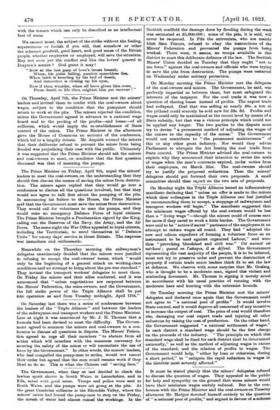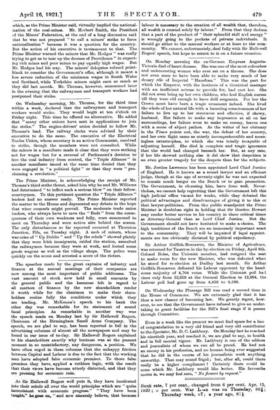It must be stated plainly that the miners' delegates refused
to discuss the question of wages. They appealed to the public for help and sympathy on the ground that some miners would have their minimum wages unduly reduced. But in the con- ference with the Prime Minister and the coal-owners on Tuesday afternoon Mr. Hodges devoted himself entirely to the question of " a national pool of profits," and argued in favour of a scheme
which, as the Prime Minister said, virtually implied the national- ization of the coal-mines. Mr. Herbert Smith, the President of the Miners' Federation, at the end of a long discussion said that he was not prepared " to call a miners' strike to force nationalization " because it was a question for the oountry. But the action of his executive is tantamount to that. The Prime Minister warned the miners that Mr. Hodges " was really trying to get us to tear up the decrees of Providence " in expect- ing rich mines and poor mines to pay equally high wages. But Mr. Hodges had his way. The miners' delegates refused point- blank to consider the Government's offer, although it meant a less severe reduction of the minimum wages in South Wales and Scotland, while York/dare miners might earn as much as they did last month. Mr. Thomas, however, announced later in the evening that the railwaymen and transport workers had postponed their strike.



































 Previous page
Previous page